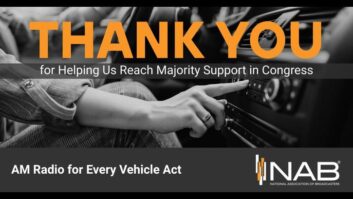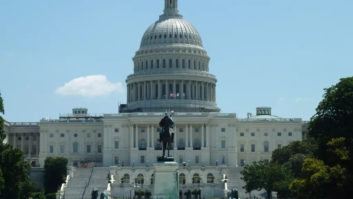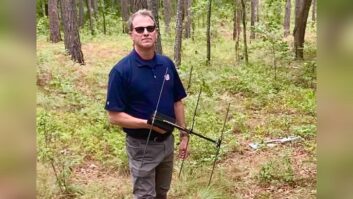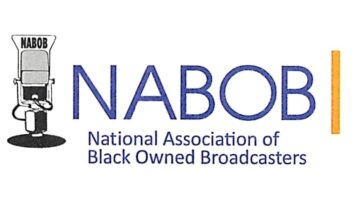Even as the final results of Tuesday’s 2018 Midterm Elections are still being tallied, pundits and lobbyists are looking into their crystal balls to divine what may be in the United States’ future now that the House of Representatives is controlled by a Democratic majority and the Republicans maintained their majority in the Senate.
Pillsbury Winthrop Shaw Pittman LLP is among those, and the international law firm has shared its predictions for the policy priorities of the incoming 116th Congress in a document they shared with clients Wednesday.
The following highlights touch on issues of interest to broadcasters.
It should be no surprise that Pillsbury expects “Democratic leaders in the House will act quickly to increase and intensify their use of Congressional investigative powers.” Broadcasters should take note that Congressman Frank Pallone (D-NJ) will likely head the House Energy and Commerce Committee, and his agenda is predicted to include investigations of broadcast companies, among other oversight activities.
Those in the know anticipate the House Oversight and Government Reform Committee will be led by Congressman Elijah Cummings (D-Maryland), the committee’s highest-ranking Democrat. He’s on the record expressing interest “in investigating the Trump Administration’s response to Hurricane Maria in Puerto Rico,” and since the telecommunications infrastructure in the U.S. territory was badly damaged, broadcasters are among the many who have struggled to return to normalcy and have blamed the federal response in no small part.
However, not every issue will be a battle of wills between the House, Senate and Trump administration.
Bipartisan cooperation is forecasted for the Ways & Means Committee and the Transportation & Infrastructure Committee.
For example, predicted Transportation & Infrastructure Committee Chairman Peter DeFazio (D-Ore.) is in favor of infrastructure spending, especially for improvements to “critical infrastructure” — which includes telecommunications, and therefore, radio and television broadcasting.
Democrats’ infrastructure plan also emphasizes “improving and modernizing aging energy infrastructure, shoring up grid reliability, expanding renewable energy, and promoting energy efficiency programs,” which Pillsbury says should be agreeable to bipartisan legislators. Likely House E&C Committee Chairman Pallone will also use this as an opportunity to advocate for “renewables and energy efficiency programs” as part of these improvements.
Another area of potential agreement is cybersecurity, which will also likely be on the agenda for many state legislative bodies. Specifically, the new Congress will likely tackle rules for “Internet of Things” devices, although Pillsbury says it’s unclear whether the House and Senate would agree on such security legislation.
Also, the passage of the Cybersecurity and Infrastructure Security Agency Act, which President Trump is expected to sign, means that “the White House that would appoint the Department of Homeland Security to stand up a dedicated agency to be the government’s main civilian cyber authority.” However, Pillsbury notes that the new agency will need funding and oversight as it works to take “over core federal responsibilities to combat cyber threats.”
Once it’s up-and-running, the new cybersecurity agency would likely focus on “supply chain” security and also push for the development and implementation of National Institute of Standards and Technology cybersecurity best practices. It also wouldn’t be alone in these efforts; states including California, Arizona, Colorado and Virginia have already passed “legislation aimed at data security and security practice requirements,” and Pillsbury predicts other states will soon follow suit.
Broadcaster shouldn’t expect a lot of movement in legislation related to the Federal Aviation Administration any time soon, since President Trump signed the FAA Reauthorization Act of 2018 last month, securing funding and authorization through 2023.
Note that some leadership positions in the House of Representatives and the Senate are still up in the air.
With Congressman Bill Shuster (R-Pa.)’s retirement, the new Republican ranking member of the House Transportation Committee will either be Congressman Jeff Denham (R-Calif.) or Congressman Sam Graves (R-Mo.); however, Graves has more seniority over Denham, Pillsbury notes.
And even though the Senate majority has note changed, leadership shifts are expected. Pillsbury says current Senate Commerce Committee Chair Sen. John Thune (R-S.D.) is projected to become majority whip, which leaves the committee chair seat vacant. Sen. Roger Wicker (R-Miss.) is predicted to take over as chairman of the Senate Commerce Committee, but he currently chairs the telecommunications subcommittee and hasn’t signaled “a specific agenda for transportation and aviation-related matters.”
Another sticky wicket for Senate Commerce is the to-be-determined fate of Sen. Bill Nelson (D-Fla.), who is currently the ranking member but may not survive a recount against Florida Gov. Rick Scott for the seat. If Nelson doesn’t return, then Sen. Maria Cantwell (D-Wash.) is next in line in seniority for Commerce — but she is current ranking member of the Energy Committee. If Cantwell demurs, Sen. Amy Klobuchar (D-Minn.) would be next in line for the role.
The midterms also caused some shake ups in state government control. Nonetheless, Pillsbury expects Republicans will continue their quest for “‘right size’ regulations governing occupational licenses,” and the firm believes many Democrats will agree with the goal because “burdensome occupational licensing requirements” can set too high of a bar for many to enter certain fields. Legislators will work to “reform occupational licensing requirements” while allowing private, voluntary certifications as valid. (Pillsbury likely highlighted this issue because the firm serves as counsel to the Professional Certification Coalition, which aims to ensure that protection of private certification.)







